![]() — หน้าแรก — เกาะติดข่าว
— หน้าแรก — เกาะติดข่าว
ข่าวเศรษฐกิจและธุรกิจประจำสัปดาห์
-
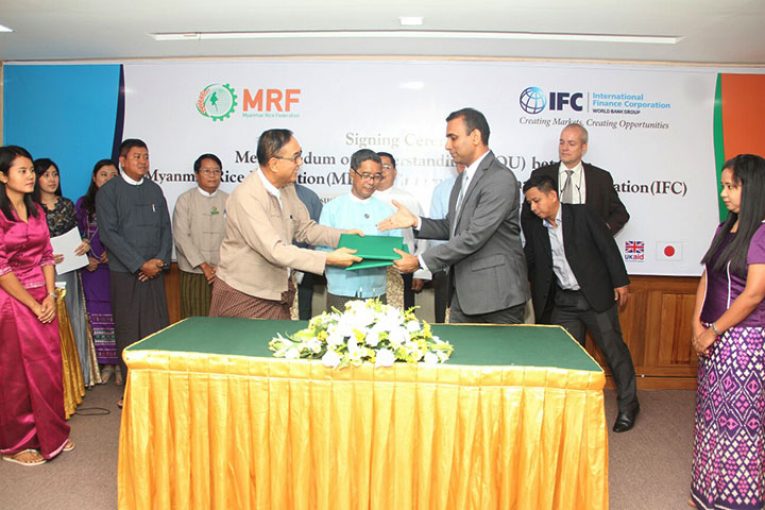
Myanmar Rice Federation and International Finance Corporation (IFC) signed a contract to promote Myanmar’s rice sector through the cultivation of high quality rice and enhance the living standards of the local farmers
To promote Myanmar’s rice sector through the cultivation of high quality rice and enhance the living standards of the local farmers, the International Finance Corporation (IFC) and the Myanmar Rice Federation (MRF) signed a contract at the Republic of the Union of Myanmar Federation of Chambers of Commerce and Industry (UMFCCI) office on 29 May 2018. “We welcome the friendship with IFC. MRF is planning to export some 4 million metric tonnes of rice and broken rice in the 2020-2021 fiscal year. Rice is the chief export product in Myanmar’s national export strategy, Therefore, the cooperation between MRF and IFC will be effective, said U Chit Khine, chairman of MRF. -
All industrial zone committees in Yangon will be restructured to create a zone supervising committee to provide one stop service for investors (Daw Nilar Kyaw, Regional Minister of Electricity, Industry and Transport)
All industrial zone committees in the Yangon Region will be restructured, according to Daw Nilar Kyaw the Regional Minister for Electricity, Industry and Transportation. She was responding to the question of U Kyaw Kyaw Mg, Member of Regional Parliament from No. 2 Constituency of Dagon Myothit (East), at Yangon Regional Parliament’s regular meeting held at May 16. U Kyaw Kyaw Mg questioned the regional government on whether it has plans to reorganized the industrial zone committees in Dagon Myothit (East). “In reorganizing the zone committees, we have plans to create a zone supervising committee to provide one stop service for investors. The zone supervising committee will have oversight over the 29 industrial zones. Some of the individual zone committees were in the process of restructuring themselves, therefore, we are suspending that restructuring,’’ she said. Surprisingly, there are 29 industrial zones in the Yangon Region, and yet, no industrial zone laws have been put into place, according to the minister. Furthermore, the zones are lacking in infrastructure, for instance: uncoordinated water treatment, drainage systems, waste disposal, and electrification, she added. -
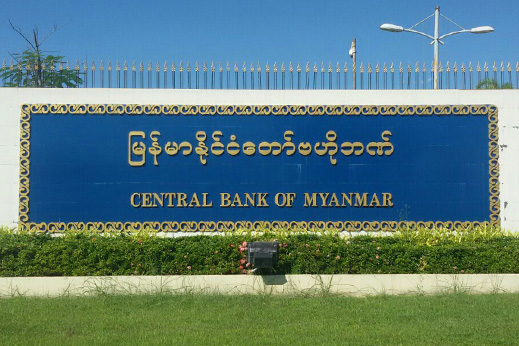
President U Win Myint will select a replacement for the Myanmar Central Bank Governor with the consent of the Pyidaungsu Hlattaw, with two months left until the end of Central Bank Governor, U Kyaw Kyaw Maung’s term
With barely two months left until the end of Central Bank Governor U Kyaw Kyaw Maung’s term, Frontier examines the field of potential replacements — if the incumbent isn’t given a second term. THE FIVE-YEAR term of Myanmar’s Central Bank governor will end on July 31 and in the coming months President U Win Myint will select a replacement, with the consent of the Pyidaungsu Hluttaw. The decision will be watched closely because the governor wields great power over the financial sector and, by extension, the entire socio-economy. The Central Bank of today is unrecognisable from when U Kyaw Kyaw Maung was appointed in 2013. Then, it was a department in the finance ministry whose primary function was to print money to fund the budget deficit. When President U Thein Sein signed its independence into law that July, skeptics said it was just a gesture. They were wrong: it has become a strong and (mostly) independent institution. -
Myanmar Petroleum Trade Association (MPTA) urges the government to strictly enforce the recently enacted petroleum and petroleum products laws and regulation
Myanmar Petroleum Trade Association (MPTA) secretary U Win Myint has expressed the need for the government to strictly enforce the recently enacted petroleum and petroleum products law in light of the widespread practice of retailers selling a mixture of imported and local fuel. Dr Myint stated the practice was tarnishing stations which adhere to the law and sell the correct quality fuel. The Petroleum and Petroleum Products Law was signed and enacted by then-President U Htin Kyaw on August 1, 2017. It contains provisions on the importation, exportation, transportation, storage and the entire supply chain. “Some stations sell the fuel after being mixed with local products. Due to some greedy businessmen, the others cannot compete with them in prices and all as the group are being criticised for poor quality. So, we are calling for enforcement of the enacted law,” Dr. Win Myint said. Dr Myint said retailers had been instructed to add a pigment or colour to local petroleum products, so consumers could distinguish between petroleum products and imported ones, but this is not enforced in reality. -
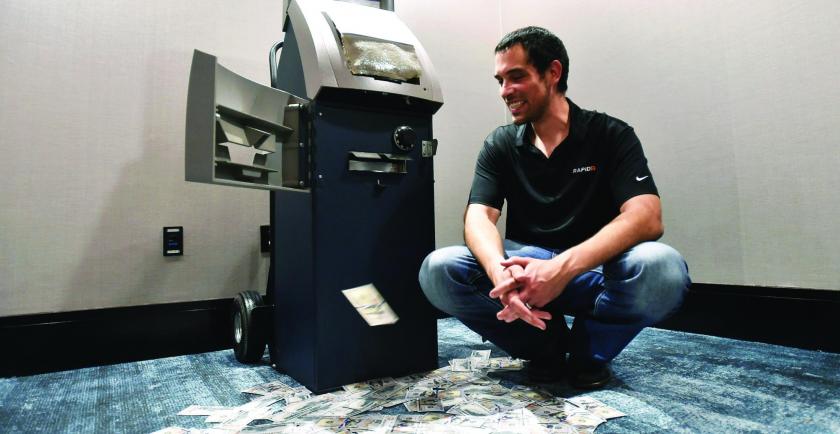
Diebold Nixdorf recommends a strategic, multi-layer approach in protecting Myanmar’s financial institutions
In its “Global ATM Market and Forecasts to 2022” report released in September 2017, the London-based consulting firm RBR pointed out Myanmar as the country owning the fastest growth of ATMs in the world over the next five years. The expansion, according to the firm’s finding, was primarily led by economic reform. Although Myanmar currently has one of the lowest ratios of ATMs per one million in population among all ASEAN countries, the report expects that, along with expansion in banking services, ATM deployments are predicted to double to 6,000 in Myanmar by 2022. Despite that being great news, with added numbers of ATMs comes additional risks. There have been reports of security breaches affecting ATMs – abroad and domestically in Myanmar – namely fraud attempts such as skimming, malware, and data security attacks. An April 2017 report by Symantec showed how ransomware attacks around the world have increased by more than 36 percent during the period from 2015 to 2016, with 463,841 cases detected in a single year. -

Myanmar authorities invite foreign insurance companies to operate and provide investment, technology and other requirements in the country
Myanmar authorities are inviting foreign investments in the country's insurance sector, the official Global New Light of Myanmar reported Saturday. The authorities announced last month to allow foreign insurance companies to operate and provide investment, technology and others requirements that are needed in the country's insurance sector. At present, some 1,200 agencies have been granted licences by the Insurance Business Regulatory Board so far, with comprehensive motor insurance, fire insurance, life insurance, health insurance and travelling insurance topping the lists. Myanmar earns only 0.07 percent income from insurance services at which only 86 in 1,000 people has insurance, the report said. Foreign Direct Investment (FDI) mainly enters into the country's agricultural, livestock and fisheries, manufacturing, power, transport and communication, hotel and tourism and real estate sectors. -
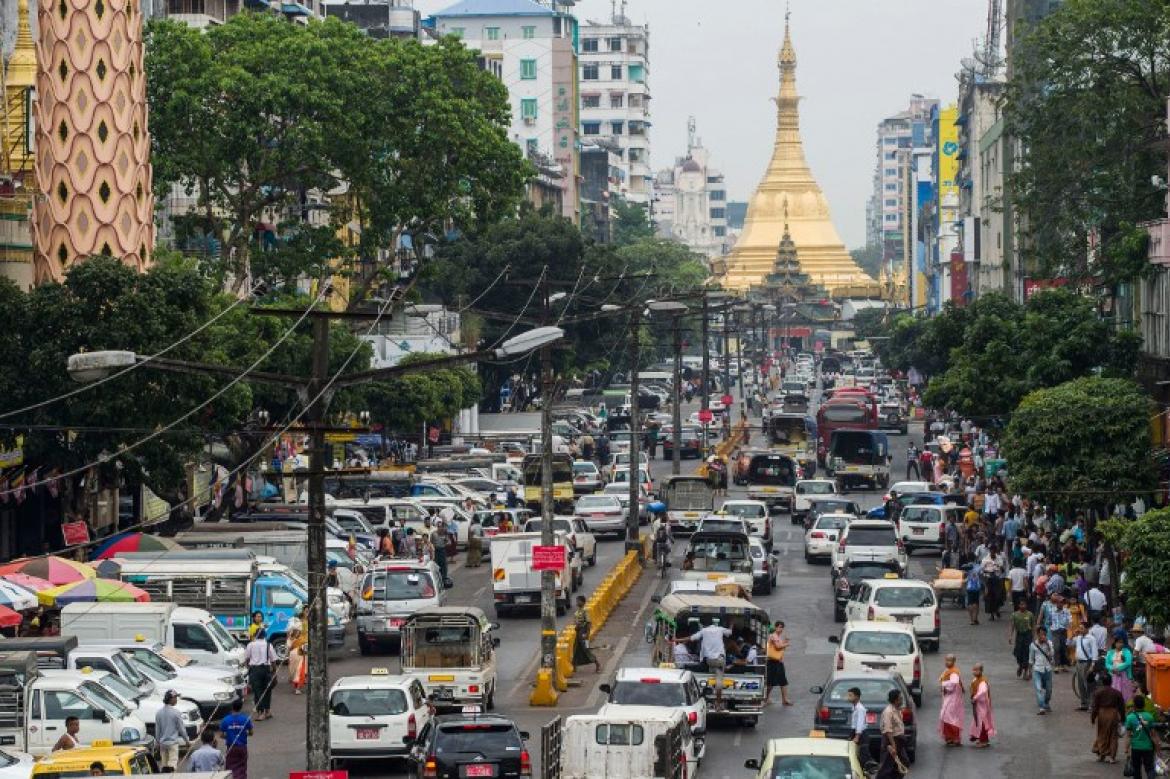
Ministry of Construction seeks up to US$1.5 million private investment for a 47.5 km elevated ring road in Yangon
YANGON – The Ministry of Construction’s proposal for a 47.5-kilometre elevated ring road in Yangon could require as much as US$1.5 billion in private investment, sources have told Frontier. In January the ministry unveiled plans to conduct a tender for a 20.5 kilometre elevated highway but last week announced that the project had been expanded to a four-lane elevated ring road. Sources have put the likely cost of the highway at $20 million to $30 million per kilometre, depending on the number of exits and other technical factors, for a total price tag of between $1 billion and $1.5 billion. When the 20.5km project was announced in January the cost was estimated at $350 million to $400 million. On May 18, the ministry invited expressions of interest from local or international companies “interested in designing. engineering, financing, constructing, operating and maintaining” the toll road through a long-term public-private partnership concession agreement. The EOI will be followed by a tender, most likely at the end of the year. -
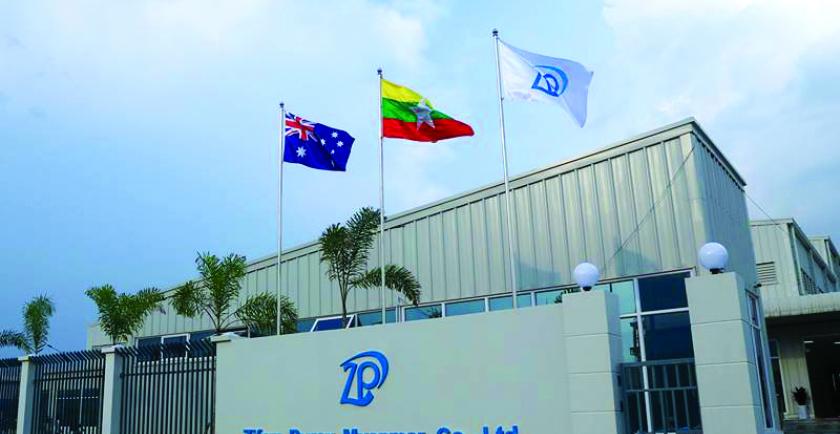
Myanmar’s first antibiotic producing plant, a joint venture between Australia based drug maker Zifam and Pyrex Trading Co.,Ltd. Myanmar, was opened in the Thilawa Special Economic Zone to meet the domestic drug demand
To meet the domestic drug demand, an antibiotic producing plant was opened in the Thilawa Special Economic Zone on May 12. Australia based drug maker Zifam will produce three categories of drugs under the name of Zifam Pyrex Myanmar Co., Ltd in collaboration with local company named Pyrex Trading Co., Ltd. “We are glad to announce antibiotics locally. Sometimes, drug shortages occur because imported drugs haven’t arrived on time. Having a local plant will reduce money flowing outside of the country, and illicit drugs and fake drugs from flowing in,” Dr. Khin Thiri, Member of Director from Zifam Pyrex Myanmar Co., Ltd, said. The company grantees to offer high quality drugs with lower prices compared to imported drugs. “The facility will create jobs and give technical know-how to local workers,” Dr. Myint Htwe, Union Minster of the Ministry of Health and Sport, said. -
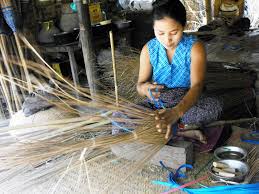
The government is working together with the private sector to promote local SME goods for export to narrow the trade deficit in Myanmar
The government is working together with the private sector to promote locally produced goods, including those made in the states and regions beyond Yangon. The aim is to export the goods and narrow the trade deficit, which is in line with the National Export Strategy. Last week, the Union of Myanmar Federation of Chambers of Commerce and Industry (UMFCCI) together with the government held the Unique Product, Unique Region workshop in Pathein township, Irrawaddy State. The workshop aimed to showcase, identify and promote products made in Pathein with export potential. Local businesses such as Pathein Umbrella, Pathein Pawsanhmwe Rice Enterprises attended the workshop. The UMFCCI is raising efforts to connect more products made by local small and medium enterprises (SMEs) to the National Export Strategy, which now prioritises products such as beans, pulses and oilseeds, fisheries, forestry products, textiles and garments, rice and rubber. Among the goods produced by local SMEs that are currently exported is the iconic Pathein umbrella, which is now being sold in Europe. “Our products are quite popular in Europe, especially Germany. Now, we are looking to export to the UK and US,” said a representative from Pathein Umbrella. -
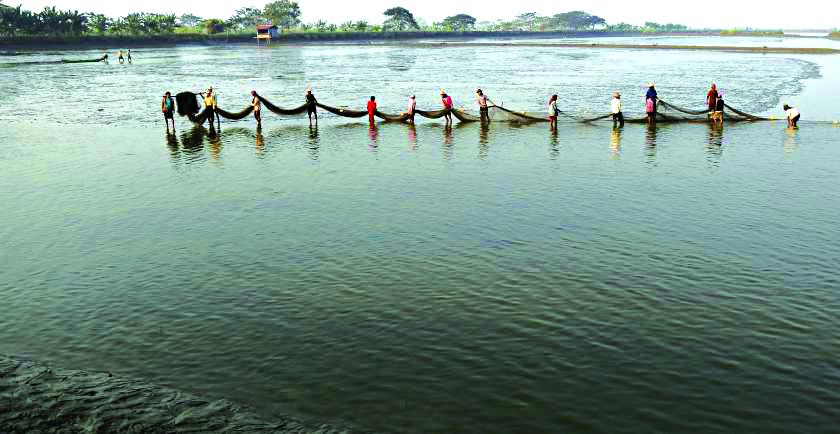
The Myanmar government plans to issue a Land Used Policy to attract local and foreign investments into the livestock sector: the policy will address issues related to using farmland for other purposes and the use of uncultivated land
Myanmar is planning to issue a Land Used Policy to attract local and foreign investments into the livestock sector, according to U Tun Win Myint, Head of Yangon Regional Fishery Department, at the meeting held at Myanmar Fishery Federation on May 22. The Union Government is in the process of studying the regulations in Thailand, Vietnam, and China. The policy will address issues related to using farmland for other purposes, and the use of uncultivated land, he added. “Investors want to come in and invest, but they are hesitating because there is no clear regulation or policy. They come in, inquire about the potential, and just then leave,’’ Dr. Myint Sein, Vice President of MFF said at the meeting held in mid-May.
เกาะติดข่าว
Copyright © 2014 Business Information Center All Rights Reserved.







